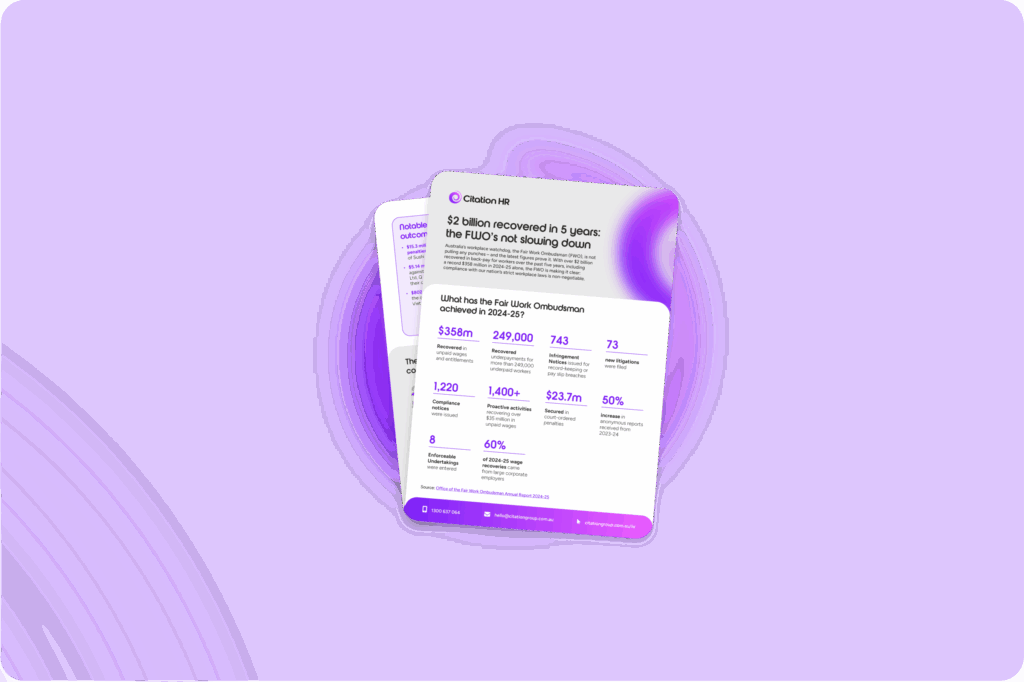
Employers often underestimate the potential for workplace emergencies including disruptions caused by natural disasters, viewing them as rare and unimaginable occurrences. However, employers must have comprehensive management plans ready for such events. Persons conducting a business or undertaking (PBCUs) are responsible for ensuring a safe working environment, which includes recognising and managing workplace risks.
Here, we outline what your employer obligations are during emergencies, why comprehensive management plans are a must for businesses, and how preparing for the worst can save your business more than money.
Payroll: how does pay work during emergency events?
It’s often the first thing your employees will think about in this situation – and rightly so, it’s their livelihood – so how does paying your staff work during emergency events? A frequent concern for employers during emergencies is the management of staff and their pay. Events like natural disasters or equipment failures may permit employers to stand down employees without pay.
Pursuant to section 524 of the Fair Work Act 2009 (Cth) (FW Act), an employer may stand down an employee if the employee cannot be usefully employed due to:
- Industrial action (not organised or engaged in by the employer);
- Machinery or equipment breakdowns for which the employer is not responsible; or
- Work stoppages that are caused by factors outside the employer’s reasonable control.
The circumstances in which an employer may stand down employees due to a ‘stoppage of work’ has been held in Stelzer v The Trustee for the Ideal Acrylics Unit Trust [2020] to have a narrow interpretation. That is, a stoppage of work can’t be broadly construed to include a mere downturn in business, but rather what is required is that there is a cessation of the duties/business activity the employee is engaged to perform. For example, in the case of Stelzer, there was a slowing of demand for the production of benchtops, not a complete cessation of the business activity of manufacturing benchtops and therefore the employer in this case could not rely on s.524 of the FW Act to lawfully stand down its employee without pay.
Consequent general practice is that if employees can be reasonably redeployed whilst their standard duties are unable to be performed as a result of a natural disaster level emergency, it won’t meet the stand down without pay requirements.
Despite the sudden nature of emergencies, it’s advisable to inform employees in writing about their stand-down status and the reasons for it. Initially, verbal notification can be given, followed by an email or letter. Employees may also be offered the option to take paid annual leave during the stand-down period to mitigate financial difficulties.
But what about Work, Health & Safety?
Employers must have thorough and appropriate plans to manage risks. PBCUs are required to have an emergency plan – a written document detailing requirements and instructions for workers in case of an emergency. This plan should include emergency procedures, testing of these procedures, and information, training, and instructions for workers on how to implement them.
To avoid liability in the event of a workplace accident or incident, you must show that you have taken all reasonable steps to ensure a safe work environment. This includes conducting a risk management process to identify workplace hazards and adhering to all applicable WHS legislation and specific industry regulations regarding safe work practices.
How can Citation HR help?
Inside our cloud-based, award-winning HR Software, you’ll find tailored workflows that can assist in identifying potential workplace hazards, documenting incident details, and managing an individual’s return to work following a workplace accident. Emergencies happen, and sometimes, even with the best preparation, can deliver significant disruption to a business – and that’s where having experts like Citation HR behind you can make all the difference. Our wealth of experience and industry know-how is what sets us apart from the crowd and gives our clients an undeniable competitive edge.
If any of this information has raised any questions about how to manage an employer stand-down or you have another workplace matter you need assistance with, please reach out to our workplace relations experts via our 24/7 HR Advice Line.
About our author
Daniel Ive is a Workplace Relations Advisor at Citation HR and assists a variety of clients via the HR Advice Line. He is currently studying for a Bachelor of Arts/Laws.









